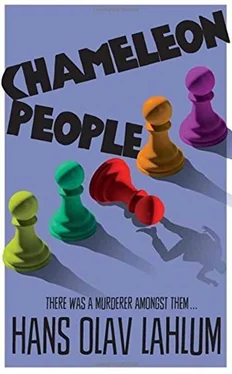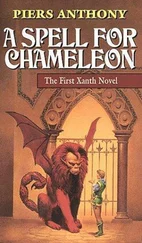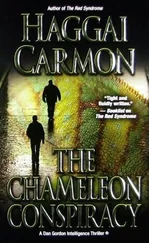When I explained that I was a detective and that I wanted to ask her some questions about her now dead pupil, Tor Johansen, her immediate response was: ‘Well, the babysitter will have to wait a few minutes, then.’
She led me down the corridor and opened the door to a big classroom.
‘We have plenty of space now as the number of pupils has fallen,’ Eveline Kolberg commented with a wry smile as we sat down on either side of a brown desk.
The desk resembled its owner: small, tidy and in good condition. Exercise books for social studies lay in a neat, almost perfectly right-angled stack, parallel with the edge of the desk, ready for tomorrow.
‘There will always be a number of children with very sad fates in such a big school. But Tor Johansen was one of the saddest.’
She said this before I had even had time to ask a question, and there was a zeal about her that was inspiring. I promptly asked what she meant.
‘He was possibly one of the pupils with the least friends. I always feel sorry for those who have learning difficulties, but even more so for those who have difficulties making friends. He and his mother had had to move a number of times, so he only started here last spring. All the other pupils knew each other and he knew no one. He was not able to play football with them in the breaks, and even though he always gave the right answer when I asked him a question, the others inevitably laughed at his speech impediment. Teenagers are heartless. Last year, he would often stand and watch the others playing football in the break and then try to talk to some of them about football afterwards. But then he seemed to give up. He generally stayed at his desk with a book during the breaks. He was the only pupil we ever saw reading in breaks and the only boy who ever took library books to school.’
I asked whether she thought that he suffered because of his physical handicaps, and if he was also retarded in any way. She thought for a moment or two before she shook her head.
‘Still waters run deep, as they say. Tor was quiet on the surface, but no one bothered to find out what went on underneath. His written work was consistently some of the best in the class and he nearly always gave the right answer on the rare occasions that he put up his hand. Once when I passed him as he was watching the others play football, I said that he should consider taking the university entrance exam. “It’s a long way off. But a nice thought. Thank you,” he stammered with a shy smile. I never thought that he had any impediments, other than an inferiority complex driven by poverty. And he was not alone in that, only his complex was perhaps stronger than it is for most.’
Eveline Kolberg was now on a roll. She paused briefly and then carried on.
‘I read a biography of the British politician Bevin last week. In the introduction about his childhood, it said that two poorer people than he and his mother have never lived. It made me think of Tor and his mother. His father died long before they moved here, so I never met him. Tor only had his mother and she had practically nothing to give him. He adored his mother – she was his rock and perhaps the only person he believed had ever done anything for him. But he was a teenager now and could also see his mother’s weaknesses. “Mum drinks too much and thinks too little,” he said once when I asked him how things were at home. So that part of his life was also tragic. He had more reason than most to feel excluded and rail against society. And yet-’ She stopped all of a sudden and looked at me intensely.
‘And yet – you don’t think…’ I prompted.
She gave me a fleeting, tight-lipped smile and carried on with renewed passion.
‘And yet I do not think he murdered anyone, no. It would be so out of character. He always handed things in on time, and never protested if we said he had to go out in the breaks. He would just take his book with him and limp out. If you had come here last Friday and told me that one of our pupils would commit a violent crime over the weekend, he is the last person I would have thought of. It’s true, he was very interested in old court cases and the like, but I don’t remember him showing any interest in weapons or ever laying a hand on one of his classmates. Physically, he was very reserved. So no, unless you have come to show me photographs and evidence, I do not believe that my pupil killed that politician Fredriksen.’
She said this in a quiet, intense voice. Eveline Kolberg sat fidgeting in her chair, and then leaned forwards over her desk.
I said, as diplomatically and vaguely as I could, that the investigation had to keep all leads open, but that there was an eyewitness whose account gave reasons to doubt that her pupil had been the murderer.
‘What kind of eyewitness, what did they see?’ she asked, leaning even further forwards over the desk.
It frustrated me that I had to say, for obvious reasons, that I was unfortunately unable to tell her more.
‘Of course. I understand. Confidentiality is important,’ she said, with palpable disappointment in her voice, and finally leaned back in her chair.
Then she said that she would soon have to relieve the babysitter, if there was nothing more she could help me with.
I replied that there was nothing for the moment, but that I would contact her again if it became necessary. Then I added that I would inform her when the question of Tor’s guilt had been clarified.
We left the now empty middle school together. Outside the gates, we stopped at the bus stop. She hesitated at first, but then pointed over the road.
‘A couple of times when I came out from evening meetings, I saw Tor cycling past on his way home. I sometimes wondered if I should stop him and ask where he had been and how he was. But, unfortunately, I never did. And now that he’s dead, I regret that. I should have done more for him while he was alive. But that’s the trouble when you have too many pupils in each class, and a husband and child at home.’
I agreed with her that that was how it was; whether you were a policeman or a teacher, it was not possible to help everyone you met who needed it. She had no reason to reproach herself for the tragedy that had struck one of her pupils. Whether he was guilty or not, she very definitely was not. To the contrary, I had come to see her because his mother had told me how much he appreciated her.
Eveline Kolberg was so happy to hear this that she nearly missed her bus. We separated with a brief hug before I more or less pushed her onto the vehicle.
I stood there and watched the bus drive off. I thought that it had been a rare and inspiring meeting with a rare and idealistic teacher, whom I would gladly meet again under different circumstances. But she had a husband and a child who had to be collected from the babysitter. I had only one hour left before having supper with my fiancée – and more than enough to think about in the meantime.
It was five to four before I could leave the police station. The day’s meeting to report back to my boss was longer than expected.
Based on my description, my boss had no idea who the man in the hat might be, and he thought that it might well just be a coincidence. Otherwise he praised me for having taken the time to interview both Per Johan Fredriksen’s employees and Tor Johansen’s teacher, but could still not see any clues that might point to another murderer. It all rested on a somewhat unreliable observation by a 104-year-old woman who only contacted the police two days after the murder took place.
My boss was not in the best mood today. He was fortunately more interested in Hauk Rebne Westgaard’s story and agreed that after hearing his version, the death from 1932 was even more suspicious. At a quarter to four, we agreed that it was a serious breach of duty that an autopsy had not been carried out at the time. Three minutes later we also agreed that I should keep all possibilities open and carry on with the investigation, but that it still seemed natural to focus on Per Johan Fredriksen’s private life, in light of the mysterious death in 1932.
Читать дальше












